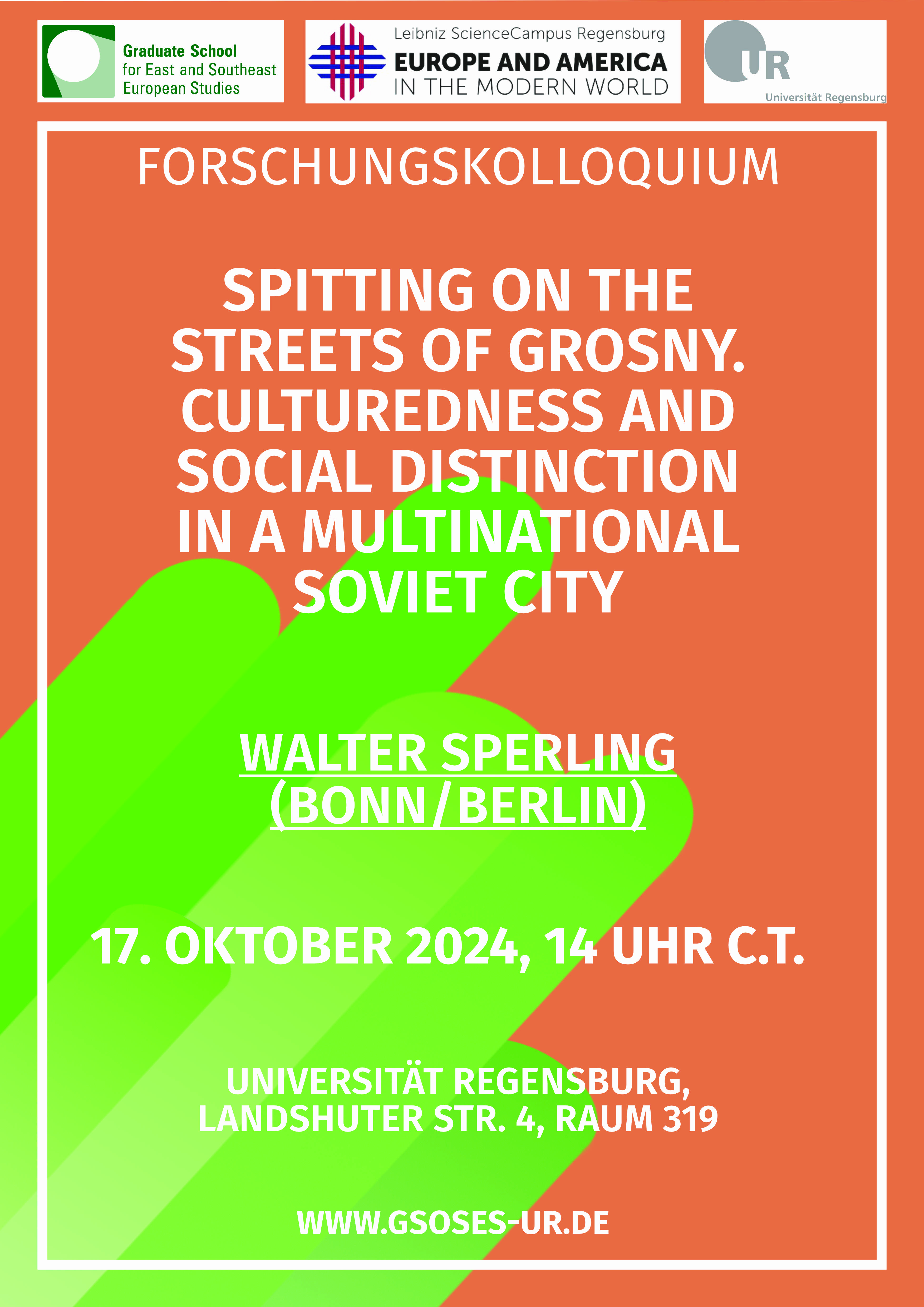Research Colloquium | Walter Sperling (Berlin/Bonn) | Spitting on the Streets of Grosny. Culturedness and social distinction in a multinational Soviet city
When? 17 October 2024, 14:15
Where? Room 319 (3rd floor), Altes Finanzamt, Landshuter Straße 4, 93047 Regensburg
The Research Colloquium is organised by Graduate School for East and Southeast European Studies in Regensburg in cooperation with the ScienceCampus. This talk is is also being held in cooperation with the Professur für Slavische Literatur- und Kultuwissenschaft.
Abstract:
In my case study of multiethnicity in Grosny, an oil city in the North Caucasus, I propose to use nationality as a social category in a way that does not eliminate its ethnic aspects but avoids essentializing it. Analyzing contemporary sources, oral history interviews, ego-documents, and photo albums, I argue that in everyday life a certain habitus, corresponding to the Soviet concept of "culturedness" (kul'turnost'), was often more important than nationality in distinguishing peoples, although the latter remained a category promoted by the Soviet party-state. By making visible the reinterpretations and hybridizations of hegemonic concepts and categories, my paper sheds light on processes of acculturation as well as social conflicts within late Soviet society at its multiethnic periphery. It suggests that acculturation, as well as the conflicts amplified by the growing economic crisis, preconfigured the dynamics of politicization in the perestroika period and its violent outcome in the 1990s in the Caucasus.
Bio:
Walter Sperling holds a Ph.D. from the University of Bielefeld (2010), following positions at Ruhr University Bochum and Ludwig Maximilian University in Munich. His research focuses on the cultural and social history of the 19th and 20th centuries, multiethnic societies in the Russian Empire and Soviet Union, memory anthropology in the post-Soviet space, and the history of the Caucasus. In his latest book Vor den Ruinen von Grosny (2023), he explores the Soviet Union as a multiethnic state, examining how diverse communities coexisted in Soviet cities after periods of violence and upheaval.

